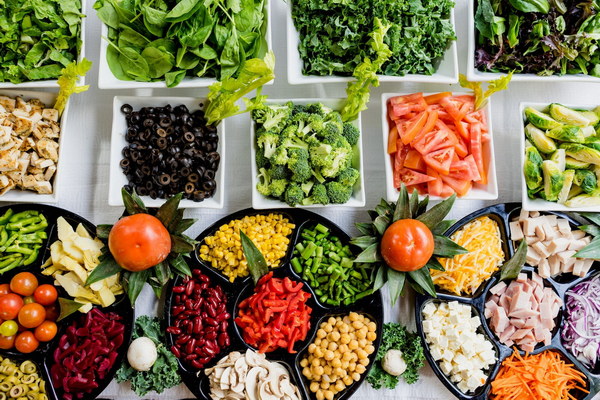Boost Your Yin and Yang A Comprehensive Guide to Tonic Foods for Yin and Yang Deficiency
Introduction:
In traditional Chinese medicine (TCM), the balance of Yin and Yang is considered crucial for maintaining overall health and well-being. When there is an imbalance in these two fundamental forces, it can lead to various health issues. To restore this balance, TCM suggests incorporating certain foods that are known to tonify and nourish the Yin and Yang energies. In this article, we will explore the best food options to combat Yin and Yang deficiencies and provide a balanced diet for your health.
Yin Deficiency:
Yin deficiency occurs when there is a lack of cool, moist, and nourishing properties in the body. It can lead to symptoms such as heat, dryness, and exhaustion. To combat Yin deficiency, you can include the following foods in your diet:
1. Goji Berries: These berries are rich in antioxidants and have cooling properties, making them excellent for nourishing Yin.
2. Peaches: Peaches are a delicious and nutritious fruit that is cooling and moistening, which helps to replenish Yin.
3. Almonds: Almonds are a great source of vitamin E and have a cooling effect on the body, aiding in Yin replenishment.
4. Quinoa: This gluten-free grain is cooling and nourishing, and can be a healthy alternative to other grains.
5. Coconut Water: With its hydrating and cooling properties, coconut water is an ideal drink to replenish Yin.
Yang Deficiency:
Yang deficiency occurs when there is a lack of warmth and vitality in the body. Symptoms may include coldness, fatigue, and weakness. To combat Yang deficiency, you can incorporate the following foods into your diet:
1. Ginger: This spicy root is well-known for its warming properties and can be used in various dishes to boost Yang.
2. Red Meat: Red meat, such as beef and lamb, is rich in iron and vitamin B12, which can help combat fatigue and boost energy levels.
3. Fish: Fish, especially fatty fish like salmon and mackerel, is a great source of omega-3 fatty acids, which can help improve energy and mood.
4. Nuts and Seeds: Nuts and seeds, such as walnuts, chia seeds, and flaxseeds, are high in protein and omega-3 fatty acids, which are beneficial for Yang.
5. Garlic: Garlic has a warming effect and can be used in various recipes to help boost Yang energy.
Balancing Yin and Yang:
To maintain a healthy balance between Yin and Yang, it is essential to include both cooling and warming foods in your diet. Here are some tips to help you achieve this balance:
1. Include a variety of fruits and vegetables in your diet, as they can provide a balance of cooling and nourishing properties.
2. Choose whole grains and legumes to provide a balance of Yin and Yang.
3. Incorporate a variety of nuts, seeds, and spices to add warmth and vitality to your meals.

4. Stay hydrated by drinking plenty of water, herbal teas, and broths.
5. Practice relaxation techniques, such as meditation and yoga, to help maintain a harmonious balance between Yin and Yang.
Conclusion:
By understanding the principles of Yin and Yang and incorporating the right foods into your diet, you can effectively address Yin and Yang deficiencies and promote overall health and well-being. Remember to consult with a TCM practitioner or healthcare professional before making significant changes to your diet. With the right balance of cooling and warming foods, you can achieve a harmonious balance between Yin and Yang and enjoy a healthier, happier life.









